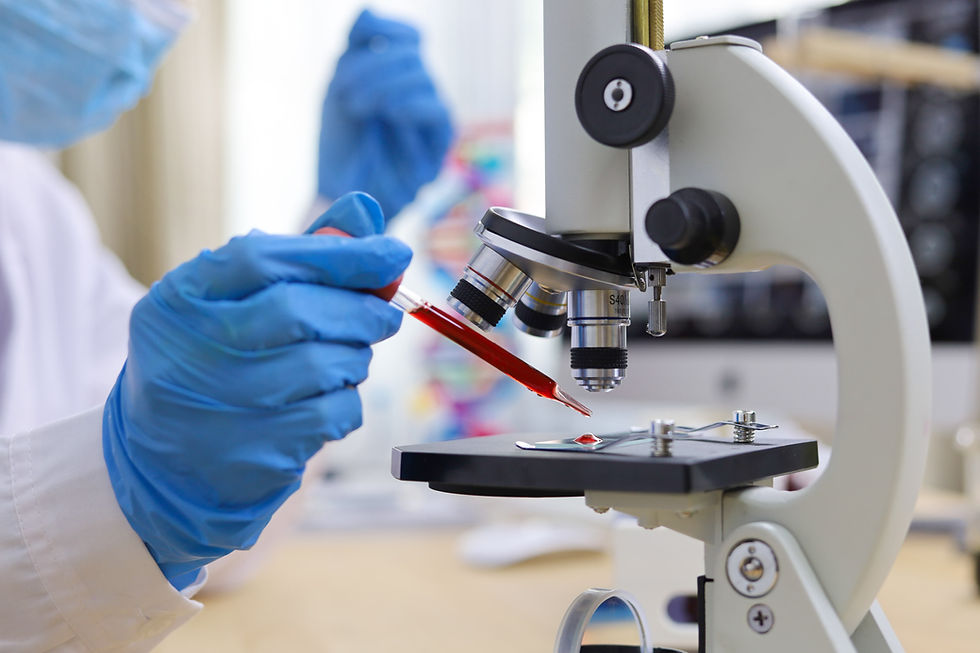Developments and new technologies for your health
- Veli Yayla

- Jul 14, 2025
- 2 min read
Revolutionizing Healthcare: The Latest Developments in Medical Technology
The landscape of medicine and healthcare is undergoing rapid transformation. With each passing year, innovative technologies push the boundaries of what’s possible—offering new ways to diagnose, treat, and even prevent illness. Here’s a look at some of the most promising recent developments that are shaping the future of health and medicine.
1. Artificial Intelligence in Diagnosis and Treatment
AI is no longer just a buzzword—it’s now a powerful tool in clinical settings. From image recognition algorithms that detect early-stage cancer to AI-driven chatbots that support mental health, machine learning models are helping doctors make faster, more accurate decisions. Notable breakthroughs include:
AI-assisted radiology tools that detect anomalies in X-rays and MRIs faster than traditional methods.
Predictive analytics that help anticipate patient deterioration before it happens.
AI in drug discovery, dramatically cutting the time required to develop new therapies.

2. Personalized Medicine and Genomics
One-size-fits-all treatment is quickly becoming a thing of the past. Advances in genomics are making it possible to tailor treatments to individual patients based on their genetic makeup. This is especially impactful in oncology, where targeted therapies are improving survival rates and quality of life.
Additionally, the rise of pharmacogenomics allows healthcare providers to determine how a patient will respond to certain medications—minimizing side effects and optimizing effectiveness.
3. Wearables and Remote Monitoring
The popularity of smartwatches and fitness trackers has paved the way for medical-grade wearable devices that monitor vital signs in real time. These tools are revolutionizing chronic disease management, especially for conditions like diabetes, heart disease, and hypertension.
New developments include:
Continuous glucose monitors (CGMs) that provide real-time blood sugar data.
Wearable ECGs and blood pressure cuffs that can transmit data to physicians remotely.
AI-powered sleep and stress monitors that help users track recovery and wellness.
4. Telemedicine and Virtual Care
The COVID-19 pandemic accelerated the adoption of telehealth, and it’s here to stay. From primary care consultations to remote physical therapy sessions, virtual care is now a fundamental part of healthcare delivery.
Emerging trends include:
Hybrid care models that blend in-person and remote visits.
Remote patient monitoring (RPM) programs for post-surgical recovery and chronic care.
Virtual reality (VR) for pain management and rehabilitation.
5. Robotics and Minimally Invasive Surgery
Robotic-assisted surgery continues to make procedures safer and more precise. Systems like the da Vinci Surgical System allow surgeons to perform complex operations through tiny incisions, leading to faster recovery times and fewer complications.
Newer robotic systems are even being used in orthopedics, neurosurgery, and ENT procedures, bringing enhanced precision to delicate operations.
Looking Ahead
Medical and technological innovation is accelerating at an unprecedented pace. From AI to genomics, and from wearable tech to robotics, the future of healthcare is more personalized, efficient, and accessible. As we continue to embrace these developments, it’s crucial to focus on equity, privacy, and accessibility—ensuring that breakthroughs benefit all, not just a few.




Comments